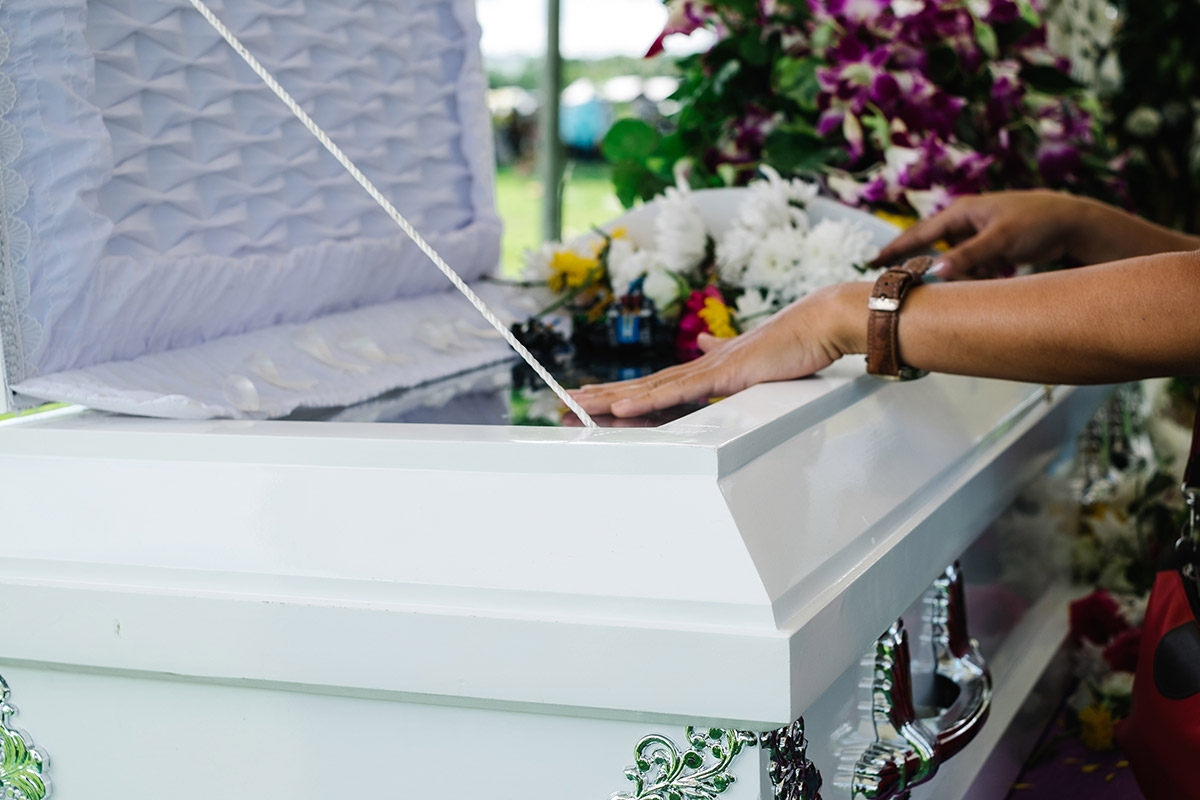
Dealing with the death of a loved one can be one of the most emotional times a person can face. It is important to let family and friends of the deceased know you are there for them and also mourning the loss of their loved one. Following the proper funeral etiquette is vital during this difficult time. However, it can be frustrating and confusing trying to decide on the best way to act and what is appropriate to say. Here are a couple of tips to remember when trying to follow the proper funeral etiquette.
What You Should Do
When you first hear about the death:
-
Acknowledge it in a way that feels the most appropriate. You may want to call and let the family know you are thinking about them. It honestly depends on your relationship with those involved to give you the best indication of how to properly react. The most important thing is to focus on the friends and family and try to comfort them the best that you can.
-
If you are a close friend, it may feel more natural for you to visit them and offer your condolences, and this is perfectly appropriate. However, if you are not as close or live too far away, you could easily call them or send them a letter, a card, or even flowers to offer your condolences.
-
If you are the type of person who feels as if they have to do something, you can talk with the family and see where they may need help. Please ensure that you are not overstepping any boundaries or making them uncomfortable. If they are at ease with your help then you could offer to help cook, clean or watch their children. Anything you feel comfortable doing and they are comfortable with accepting is totally appropriate.
During the funeral:
-
Only visit the funeral home at the designated time.
-
You should try to arrive a little early. Arriving late to a funeral may be viewed as rude or disrespectful.
-
Do not take your cell phone to the funeral. Leave them at home or in the car. If you must take your cell phone, please remember to leave it on silent or turn it off throughout the entirety of the ceremony.
-
Crying is acceptable behavior at a funeral; however, if you are not able to control yourself or become too loud, you need to step out and excuse yourself. Once you are able to get yourself back together, you may quietly reenter the ceremony.
-
Please do not take any photos or videos of the funeral.
-
If you believe that your kids are too young to behave properly during a funeral, it may be best to leave them at home with a sitter.
-
If the family wishes to hold a private funeral, you must respect their wishes.
After the funeral:
-
If you are unable to attend the funeral, you should offer your condolences the next time you see the bereaved. It does not matter how much time has passed. Simply let them know you are thinking about them and sympathize with them.
-
Simply because the funeral is over does not mean the grieving process is over. After the funeral, remember to check up on the family as often as you can. They will continue through the grieving process and may need comfort and support for weeks and months after the funeral.
-
Do not rush family and friends through the grieving process. It may take longer for some, but it is still a process they need to get through. Remember everyone grieves differently. You should simply be there for them and offer them comfort and support as they need it.
What Should You Say and Not Say
Do’s:
-
Be a good listener and always respond appropriately. Letting them know that you are there for them is the best thing you can do right now.
-
Always speak honestly and from the heart.
-
Never be afraid to call the deceased by their name.
-
Do not shy away from sharing any good times, happy moments or memories of the deceased with the loved ones. In the weeks and months after the funeral, the loved ones will cling to the good times the deceased had and how much they affected the lives of others.
-
If you find yourself uncomfortable talking to the bereaved, keep it simple. Let them know you feel for them and will be there for them if they need anything.
Don’ts:
-
Never downplay the death of their loved one or say it was for the best.
-
Never tell them it is time to get over the loss of their loved one.
-
Never place a specific time frame on their grieving process.
-
Avoid sharing any of your experiences with death, especially during the funeral.
It is a very difficult time losing someone you love. Everyone will be stressed and overly sensitive. These emotions will make it hard for us to discover what may be appropriate to say or do. However, the one constant during this time is knowing that we do not want to add to the grief of our loved ones by saying or doing anything inappropriate. Hopefully, following some of these tips will help you discover the best way to allow your loved one to maneuver through the grieving process.

















 How to Choose the Right Church Truck Drapes for Funeral and Mortuary Use
How to Choose the Right Church Truck Drapes for Funeral and Mortuary Use
 Top Spine Boards for Emergency Medical Services in 2026
Top Spine Boards for Emergency Medical Services in 2026
 Funeral Supplies Trends That Are Changing the Mortuary Industry in 2026
Funeral Supplies Trends That Are Changing the Mortuary Industry in 2026
 Key Differences Between Mortuary Cots and Standard Stretchers
Key Differences Between Mortuary Cots and Standard Stretchers
 The Future of Funeral Care: Smart, Stylish, and Sustainable Supplies
The Future of Funeral Care: Smart, Stylish, and Sustainable Supplies